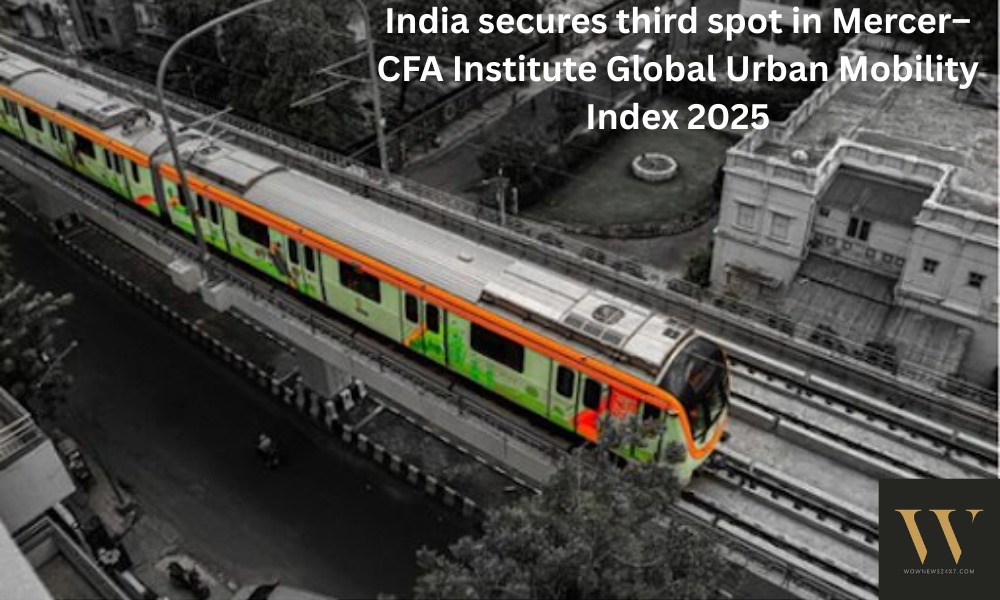India ranks third globally in metro network size, with over 1,000 kilometres of operational lines across 23 cities. Led by Delhi Metro, the country’s rapid expansion reflects its commitment to sustainable urban mobility. China tops the list, followed by South Korea and Russia, as metro systems reshape global transport landscapes.
India has secured the third spot in the list of the world’s largest metro networks, according to the Mercer–CFA Institute Global Urban Mobility Index 2025. With over 1,000 kilometres of operational metro lines across 23 cities, India’s rapid expansion reflects its commitment to sustainable and inclusive urban transport.
Key Highlights From The Global Rankings
- China leads the list with more than 11,000 kilometres of metro lines spanning nearly 50 cities, driven by its New Urbanisation Plan
- South Korea and Russia follow, with extensive networks in Seoul and Moscow respectively, known for high-frequency service and automation
- India’s metro footprint includes major hubs like Delhi, Mumbai, Bengaluru, Hyderabad, and Kolkata, with several Tier-2 cities joining the expansion wave
- Delhi Metro remains the largest in India, with over 390 kilometres of track and advanced features like driverless trains and real-time tracking
- India’s metro systems are increasingly adopting green technologies, including solar-powered stations and regenerative braking systems
- The ranking reflects not just length but also integration, accessibility, and technological innovation across systems
Strategic Insights
India’s rise in the global metro rankings is a result of sustained investment in urban infrastructure. The government’s Smart Cities Mission and Metro Rail Policy have accelerated approvals, funding, and execution of new corridors, especially in high-density regions.
Industry Context
Metro networks are now central to urban planning, offering low-emission, high-capacity alternatives to road transport. India’s focus on expanding metro connectivity aligns with global trends in reducing traffic congestion and improving air quality.
Market Outlook
With upcoming projects in cities like Indore, Bhopal, Patna, and Coimbatore, India’s metro length is expected to cross 1,500 kilometres by 2027. Private sector participation and international collaborations are also boosting innovation and efficiency in project delivery.
Sources: NDTV, Jagran Josh, WION

